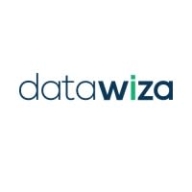

SUSE Linux Enterprise and Datawiza Access Proxy compete in enterprise solutions, where SUSE Linux Enterprise maintains an edge in pricing and support. However, Datawiza Access Proxy is seen as stronger due to its comprehensive feature set.
Features: SUSE Linux Enterprise is noted for its scalability, robust security features, and interoperability across enterprise environments. It adapts to diverse ecosystems, offering solid enterprise solutions. Datawiza Access Proxy focuses on seamless access management, strong identity integration, and is suited for comprehensive access solutions, emphasizing optimized access and security management.
Ease of Deployment and Customer Service: SUSE Linux Enterprise integrates smoothly with existing infrastructures due to its robust deployment model, supported by comprehensive customer service. Datawiza Access Proxy offers quick setup and flexible deployment options with a focus on ease of use alongside efficient customer service. SUSE is ideal for integration needs, while Datawiza appeals to those prioritizing streamlined deployment.
Pricing and ROI: SUSE Linux Enterprise provides competitive setup costs with a focus on long-term ROI through extensive support and security features. Datawiza Access Proxy may have higher initial costs but promises substantial ROI via improved security and access management. SUSE's cost-effectiveness competes with Datawiza's efficiency and security in long-term benefits.

A no-code solution to implement modern SSO (single sign on), MFA (multi-factor authentication), and granular URL-level access control. Compatible with Azure AD, Okta, etc. Saves 80% costs and boosts speed 10x.
It's perfect for safeguarding your crucial applications, from industry-standard platforms like JD Edwards, PeopleSoft, E-Business Suite, and Hyperion, to your customized, homegrown applications.
SUSE Linux Enterprise offers features like YaST for server management, seamless integration with Oracle and SAP, and a robust security setup. Renowned for stability, it efficiently supports workstations, SAP workloads, and cloud migrations across diverse industries.
SUSE Linux Enterprise is known for its lightweight design, high performance, and ease of installation. Its flexible architecture supports extensive documentation and efficient patching. The system uses the BTRFS file system for effective virtualization, and community support is significant. However, challenges include package updates causing conflicts, difficult initial setup and software management, high pricing, and support response times. Improvements in security compliance, cloud integration, hardware compatibility, and documentation are also needed.
What are SUSE Linux Enterprise's important features?Industries like healthcare and banking use SUSE Linux Enterprise for secure transactions and structured application deployment. It is also a choice for organizations involved in testing, automation, and web development, offering support for SAP HANA integration and facilitating cloud migrations.
We monitor all AWS Marketplace reviews to prevent fraudulent reviews and keep review quality high. We do not post reviews by company employees or direct competitors. We validate each review for authenticity via cross-reference with LinkedIn, and personal follow-up with the reviewer when necessary.